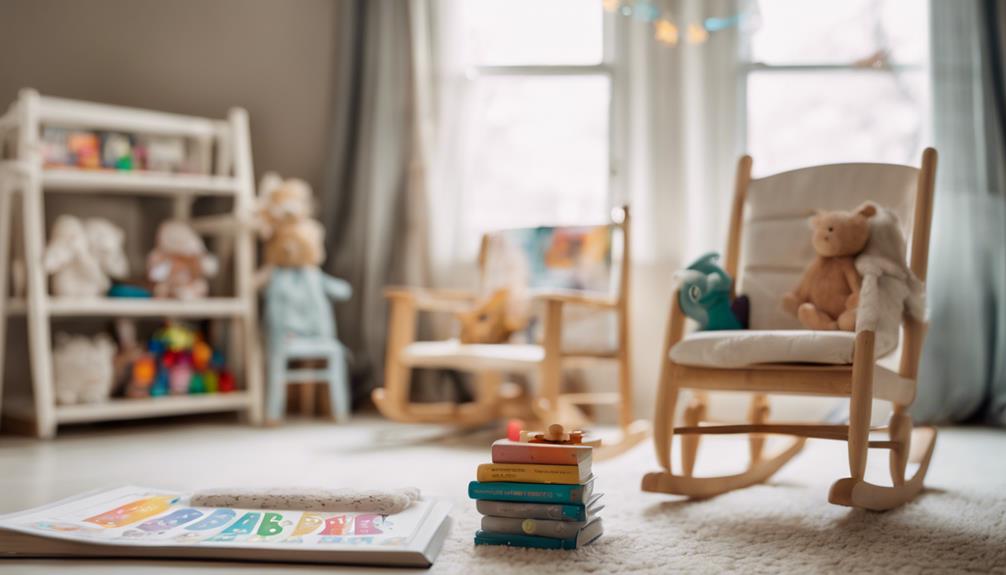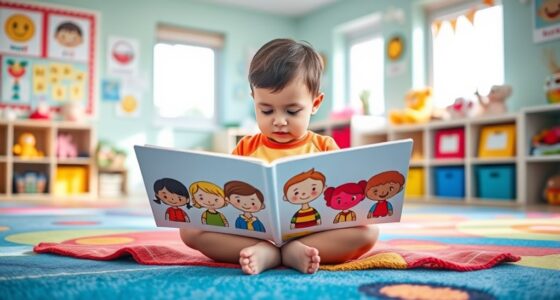To optimize cognitive growth and language proficiency, consider initiating the My Baby Can Read program when your child is approximately three months old. Starting early results in improved language development and literacy skills right from the beginning. This program establishes a strong educational base and sets the stage for future scholastic achievements. Interested in guiding your child towards early literacy and cognitive advancement? Learn more about the advantages of commencing the program at a young age.
Key Takeaways
- Start around three months for optimal cognitive development.
- Ideal for children under five.
- Introduce multiple languages for enhanced brain development.
- Utilize Volume 1 to lay a strong literacy foundation.
- Begin early to establish a love for learning and reading.
Benefits of Early Program Start
By starting the My Baby Can Read program early, around three months of age, you can enhance your child's cognitive development.
Early exposure to this program can pave the way for improved language acquisition and literacy skills in the future.
When your child can read at a young age, it helps establish a robust foundation for their reading and learning abilities.
Additionally, introducing multiple languages through the program can have a positive impact on your child's brain development, enhancing their cognitive flexibility and language processing skills.
Age Range for Program Initiation
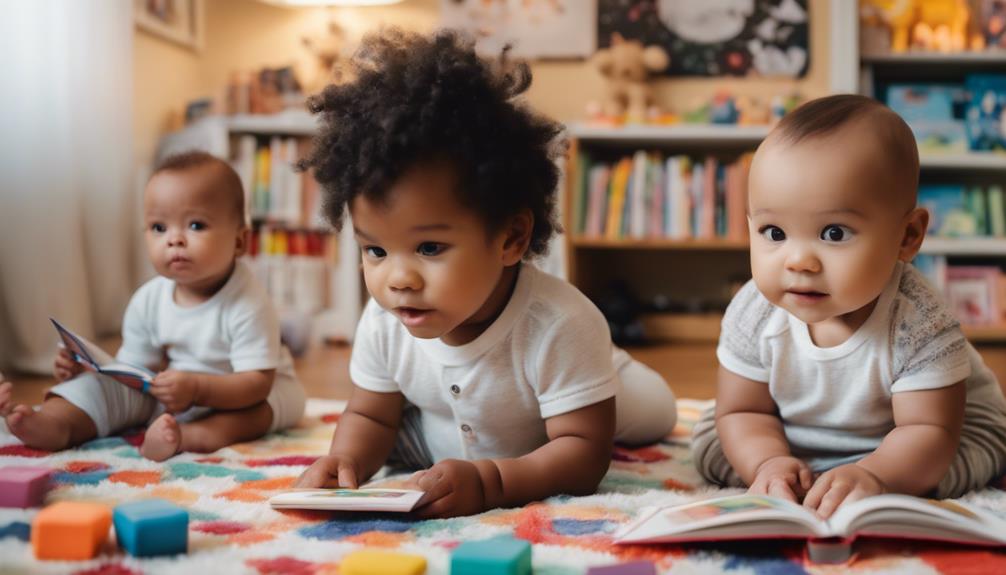
When considering the age range for initiating the My Baby Can Read program, it's crucial to focus on the ideal starting age, signs of developmental readiness, and suggested program duration. Understanding these key points will help you make informed decisions about when to begin the program with your child.
Ideal Starting Age
The ideal age range to begin the My Baby Can Read program is typically around three months old. At this age, babies start to become more alert and receptive to visual and auditory stimuli, making it a prime time to introduce them to language learning. Starting the program early can lay a strong foundation for language development and literacy skills in the future. Children under five years old can benefit greatly from starting with Volume 1 of the program, which is designed to engage young minds and foster a love for reading.
Below is a table summarizing key points about the ideal starting age for the My Baby Can Read program:
| Age Range | Program Volume | Benefits |
|---|---|---|
| Around 3 months | Volume 1 | Establish early language development and literacy skills |
Introducing multiple languages to your child from an early age can also positively impact their brain development. You can enhance language exposure by watching videos in languages you don't speak with your child. Additionally, digital versions of the program's books are available for convenient use after purchase.
Developmental Readiness Signs
Evaluating your child's developmental readiness signals is essential when deciding the suitable age range to begin the My Baby Can Read program. Here are some signs to look out for to determine if your child is ready to start the program:
- Interest in Books: If your child shows curiosity towards books and enjoys looking at pictures or listening to stories, it might be a good time to introduce the My Baby Can Read program.
- Ability to Focus: Children who can focus for short periods, especially when engaged in activities like listening to songs or watching videos, may be ready to start learning to read.
- Language Development: If your child is beginning to babble or speak simple words, they may be at a developmental stage where they can benefit from learning to read.
- Motor Skills: Developing motor skills like holding objects or pointing at pictures can indicate readiness to start the program and teach your child foundational reading skills.
Program Duration Suggestions
If your child meets the developmental readiness signs, the best age to initiate the My Baby Can Read program is around three months for ideal learning outcomes. Babies can learn from an early age, and starting the program at three months sets a solid foundation for language development. Children under five can benefit greatly from Volume 1 of the program, which introduces them to the world of reading in a fun and engaging way. Introducing multiple languages at a young age can also enhance brain development, so consider watching the program videos in languages you may not speak to expose your child to different linguistic patterns. Remember, the digital versions of the program books are available for continued learning after the initial purchase, ensuring that your baby can continue to learn and grow with the program.
| Age Range | Program Initiation |
|---|---|
| 0-3 months | Introduction to program videos |
| 3-5 months | Start with Volume 1 of the program |
| 5-12 months | Continue with Volume 2 for further learning |
| 12-24 months | Explore multiple languages for enhanced brain development |
| 24+ months | Utilize digital versions for continued learning |
Importance of Language Development

Enhancing your child's language development from an early age is key to fostering cognitive growth and communication skills. Here are some important points to keep in mind:
- Early Start, Strong Foundation: Starting a reading program early can enhance your child's vocabulary and language comprehension, setting a strong foundation for future learning.
- Multilingual Benefits: Research indicates that exposure to multiple languages at a young age can benefit your child's brain development, improving cognitive abilities.
- Interactive Learning: Engaging in interactive learning activities like the My Baby Can Read program can stimulate your child's language acquisition, making the learning process enjoyable and effective.
- Parental Involvement: Parents play a crucial role in fostering their child's language skills through consistent practice and support, creating a nurturing environment for language development.
Cognitive Benefits of Early Exposure

Early exposure to language and reading, particularly through programs like My Baby Can Read, offers significant cognitive benefits for young children. Starting the program around three months of age can have long-term positive effects on cognitive development. Research indicates that early exposure to reading helps in forming neural connections in the brain, leading to improved language acquisition and cognitive skills. Children exposed to reading early on tend to demonstrate enhanced vocabulary, comprehension, and literacy abilities later in life.
| Cognitive Benefits of Early Exposure |
|---|
| – Improved language acquisition |
| – Enhanced vocabulary and comprehension |
| – Better literacy skills |
Introducing children to multiple languages through programs like My Baby Can Read can further boost brain development and cognitive flexibility. The program emphasizes the importance of commencing early to maximize the cognitive advantages associated with early exposure to reading and language.
Setting a Strong Literacy Foundation
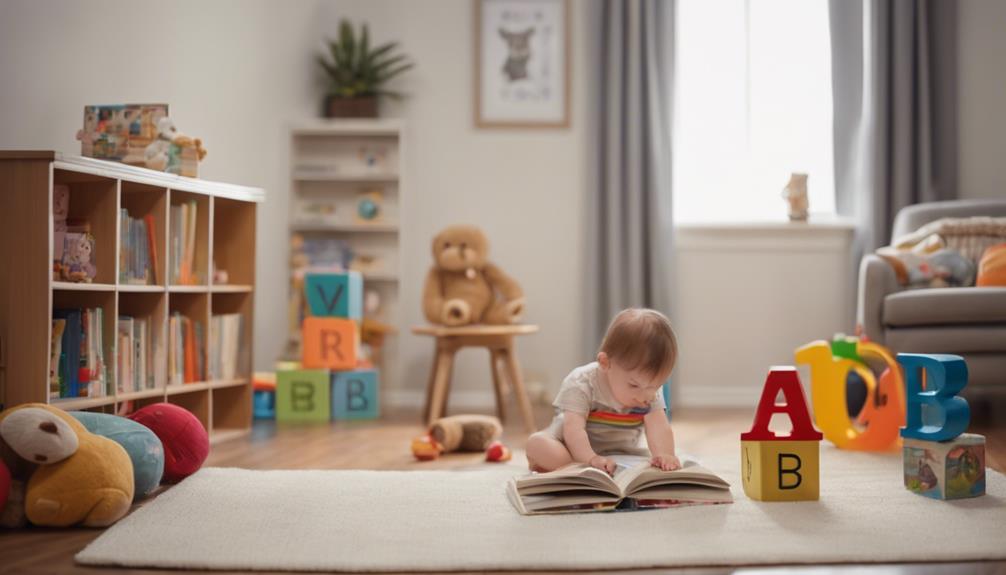
Starting the My Baby Can Read program around three months of age lays a solid foundation for developing strong literacy skills in young children. By introducing your little one to this program early on, you're setting them up for success in their language and reading abilities. Here are some key points to take into account when establishing a strong literacy foundation for your child:
- Early Exposure: Introducing your child to multiple languages from an early age can enhance their brain development and linguistic capabilities.
- Interactive Learning: Watching videos in different languages with your child can support their language learning journey and make it more engaging.
- Continued Learning: Digital versions of books are available after purchasing the program, allowing for continuous learning and reinforcement of literacy skills.
- Emphasis on Skills: The program focuses on early literacy skills, vocabulary growth, and interactive elements that cater to your child's little hands for a hands-on learning experience.
Enhancing Reading Skills Early On
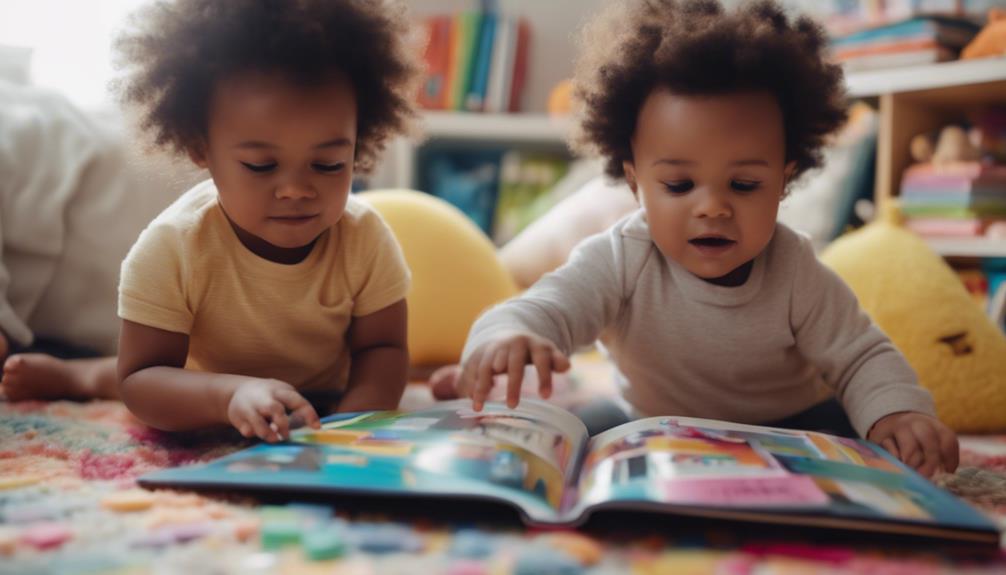
Consider initiating the 'Your Baby Can Read' program to boost your child's reading skills at an early age. The program, when started around three months old, provides a structured approach through step-by-step DVDs that aid in your baby's reading development. Additionally, early exposure to multiple languages, like through watching educational TV shows, can positively impact brain development in children under 5 years old. By engaging with your child through videos in different languages, even those you don't speak, you can create interactive learning experiences that enhance reading abilities. Additionally, the availability of digital versions of the program's books allows for continued practice and reinforcement post initial purchase. The combination of these factors sets a strong foundation for your child's literacy skills, making the 'Your Baby Can Read' program a valuable tool in enhancing reading skills early on.
| Key Points | Description | Benefits |
|---|---|---|
| Structured Approach | Step-by-step DVDs facilitate reading development | Clear learning path |
| Multilingual Exposure | Exposure to various languages through TV shows aids brain development | Cognitive benefits |
| Interactive Engagement | Engaging with your child through videos in different languages promotes interactive learning experiences | Enhanced reading skills |
Impact on Long-Term Learning
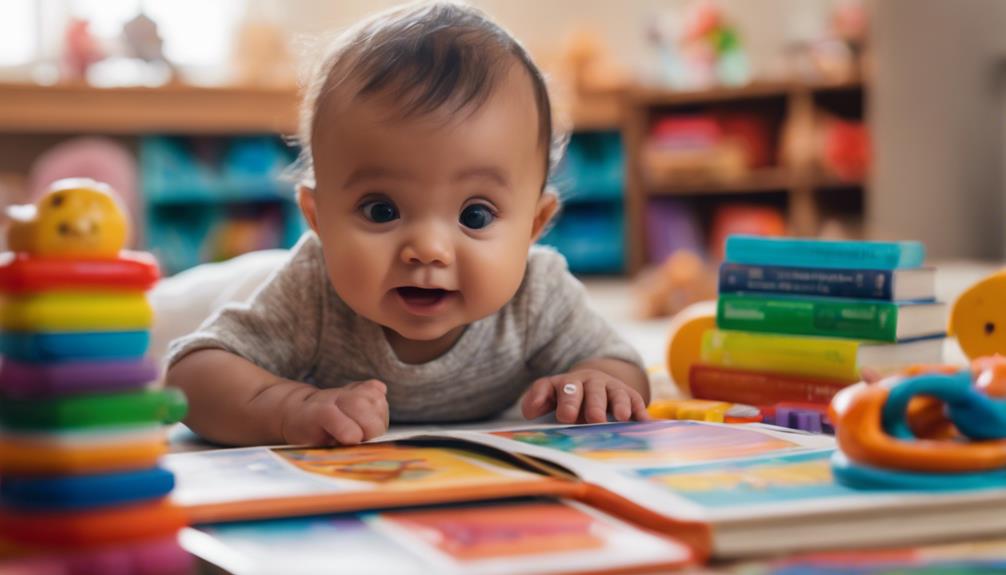
Initiating the My Baby Can Read program early can have a significant impact on your child's long-term learning and literacy skills. Here's how it can benefit your child's educational journey:
- Strong Foundation: Starting early can lay a solid groundwork for your child's long-term learning, setting them up for academic success.
- Enhanced Cognitive Development: Early exposure to language and reading materials can boost cognitive skills, aiding in overall brain development.
- Improved Reading Outcomes: Research indicates that early literacy programs may lead to better reading abilities and academic achievements in the future.
- Love for Learning: Consistent engagement with the program from a young age can foster a lifelong love for reading and learning, nurturing a positive attitude towards education.
Tips for Starting the Program

To maximize the benefits of the My Baby Can Read program, it's recommended to begin around three months of age. Starting early allows your baby to absorb language skills naturally.
When starting the program, consider beginning with Volume 1 if your child is aged 5 or under. Introducing multiple languages from the start can also enhance your baby's brain development.
Watching the videos, especially in languages you don't speak, can be highly beneficial as it exposes your baby to different sounds and accents. This exposure helps in developing a broader language understanding.
Additionally, remember that digital versions of the program's books are available for continued learning even after the initial purchase.
Signs Your Baby Is Ready

Look for signs of readiness in your baby, such as sustained attention, interest in books, and the ability to focus on images. To determine if your baby is ready for the My Baby Can Read Program, observe their behaviors closely.
Here are some signs that indicate your baby might be prepared for early learning:
- Responsiveness to Language: Watch how your baby reacts to different sounds and words. If they show interest by turning towards the sound or looking at you when you speak, it could be a positive sign.
- Curiosity and Interaction: Babies who demonstrate curiosity by exploring objects, pointing, and making sounds are often ready for interactive learning experiences.
- Communication Skills: Pay attention to your baby's babbling and attempts to imitate sounds. These early communication skills can show readiness for language development programs.
- Visual Engagement: If your baby can focus on images, follow moving objects, or show interest in books by turning the pages or pointing at pictures, they might be ready to engage with the program.
Frequently Asked Questions
When to Start Your Baby Can Read Program?
Start the Your Baby Can Read program early for best brain development. Begin with Volume 1 if your child is under 5. Introduce multiple languages for cognitive growth. Watch program videos in different languages to enhance learning.
What Age Should I Start Teaching My Baby to Read?
You should start teaching your baby to read around three months of age for best learning. Beginning with Volume 1 if your child is five years old or younger is recommended. Introducing multiple languages benefits brain development.
When Should I Start Reading to My Baby While Pregnant?
Start reading to your baby while pregnant from around 18 weeks. Your soothing voice and stories lay the groundwork for a lifelong love of reading. You'll bond, and the sound of your voice will be familiar post-birth.
What Is the Earliest Age to Start Reading?
Start reading to your baby as early as possible to foster language development. Reading from birth promotes bonding, vocabulary acquisition, and cognitive skills. Encourage a love for books by making reading a part of daily routines.
Conclusion
To wrap up, initiating your baby on a reading program early can have numerous benefits for their cognitive development and future academic success.
By exposing them to language and literacy at a young age, you're laying the groundwork for a lifetime of learning.
So why wait? Begin the program today and watch your little one thrive as they start their journey to becoming a confident reader.
Are you ready to discover your baby's potential?

